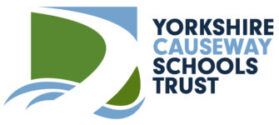As a result of our vision LOVE LEARN SHINE safety and dignity are recognised as essential precursors to learning and shining. Ensuring the basic principle of respect for the value and preciousness of each person and treating everyone as a unique individual of inherent worth is understood and embraced by all.
Working with parents and outside agencies to ensure all children remain safe at all times is our highest priority. Safeguarding covers a whole range of areas including; a coherent and systematically planned curriculum that helps children understand how to keep themselves safe and prepares them well for life in a modern world, the safe management of visitors in school, the management of risk taking in school activities, the safe management of trips and visits and strong and secure child protection procedures.
Most recently it also includes ensuring school has given due consideration to the implementation of local and national priorities such as challenging the use of discriminatory language, keeping children safe online following increased online use due to the pandemic, responding to increased mental health concerns following the pandemic.
We are dedicated to maintaining the highest standards of safeguarding and welfare for our children, staff and families. St Peter’s School recognises and promotes its responsibilities for child protection, safeguarding and Health and Safety.
As a team we work collectively to ensure effective safeguarding procedures work well. There are two key staff leading this:
Designated Trained Safeguarding Leaders
 |
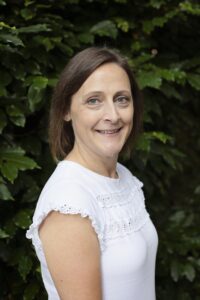 |
|
Mr Paul Griffiths Designated Safeguarding Lead |
Mrs Alice Jones Deputy Designated Safeguarding Lead |
| Designated Governor for Safeguarding and Child Protection
Mr Will Naylor Contact in school or via the school office. This governor is the person to contact should you have concerns about a child’s welfare that cannot be addressed with any of the above DSL staff members. Local Authority Designated Officer (LADO) for Safeguarding and Child Protection Trust Safeguarding Lead
Mrs Keri Standen is the Yorkshire Causeway Trust Safeguarding Lead. She provides regular supervision sessions to the DSL team as well as running the Trust DSL network which meets half termly for training and updates. Local Authority Designated Office (LADO) This is the person to contact should you have concerns about a child’s welfare that cannot be addressed with any of the staff or governors at the school. |
The NSPCC whistleblowing helpline is an available route for anyone who does not feel able to raise concerns regarding child protection failures internally or with the LADO regarding how a concern is being handled by the school. Anyone can call 0800 0280285 or email help@nspcc.org.uk

| Reach Out – Anonymously If Needed
We are here to help and always appreciate when families get in touch direct with any worries or concerns. We appreciate there may be occasions where children or families wish to report a concern or worry anonymously. This can be done in writing via letter sent in the post to St Peters CE Primary School, Belford Road, Harrogate, North Yorkshire, HG1 1JA. We have also set up an online Anonymous Concern Report for families to use if necessary. |
Anonymous reports will always be looked into based on the information provided however it will not be possible to provide feedback and exploring the concern may be more difficult when it is not possible to speak directly with the person raising the concern.
We are committed to working with parents positively, openly and honestly. We ensure that all parents are treated with respect, dignity and courtesy. We respect parents’ rights to privacy and confidentiality and will not share sensitive information unless we have permission or it is necessary to do so in order to protect a child.
School will share with parents any concerns we may have about their child unless to do so may place a child at risk of harm.
We encourage parents to discuss any concerns they may have with their child’s class teacher or senior child protection lead (see above for named persons).
The School’s Child Protection Policy is available in the policies section of the school website. All new parents are made aware of our child protection policies and procedures via the school newsletter and new starter pack. We are committed to ensuring the welfare and safety of all children in school. The school will, in most circumstances, discuss all concerns with parents about their children. However, there may be exceptional circumstances when the school will discuss concerns with Social Care and/or the Police without parental knowledge (in accordance with Child Protection procedures). The school will, of course, always aim to maintain a positive relationship with all parents. The school’s child protection policy is available on request and on the school’s website.
All teaching staff, support staff and midday supervisors and governors have received training in how to deal with child protection issues in school. The school Child Protection Policy is updated annually to reflect changes to practice, personnel and training.
The school maintains a detailed single central record with regard to the appointment of all staff and volunteers. All appointment panels include a governor or senior leader who is fully training in safer recruitment practices.
An important aspect of our safeguarding work is an awareness of contextual safeguarding. This means having a good understanding of and response to specific local risks. We have undertaken an evaluation of local risks including our response measures and outlined these in our child protection policy.
We work closely with a range of local agencies including the Police to keep fully apprised of local risks.
| Community School Liaison Police Officer
We are pleased to introduce Martin Powell who is our Partnership Hub School liaison officer.
Martin has been a CSO for 12 years covering the Harrogate area and for the last three years has worked as a full-time school liaison officer covering primary and secondary schools in the area. His main role is early intervention and prevention and to stop young people getting into trouble with the Police and to stop them gaining a criminal record. Away from work he is a fully qualified football coach and has been assistant manager of Leeds United women. |
We are pleased to present a short summary below with key information regarding local risks which we hope parents find helpful.
We are very aware that online technology plays an important role in the working and social lives of families and children. When used well and safely these technologies can enhance learning and our lives in general. As there are many different aspects to this area we have created a dedicated page of our website that focuses just on Online Safety.
We are proud to be situated at the heart of Harrogate and hat many of our children can walk, cycle and scooter to school. We are also aware the roads in and around school can be busy. Road safety is planned within our PSHE curriculum and children and families are provided with regular updates and reminders.
We are pleased to share the following information and guidance for families to support and compliment the messages provided in school.
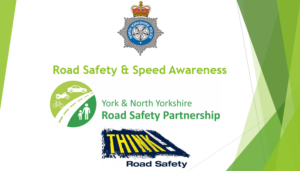
Road Safety Speed Awareness Presentation
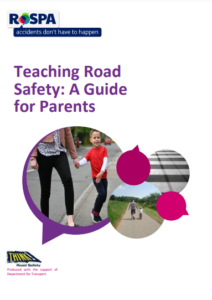

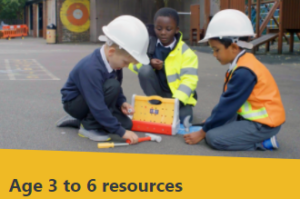
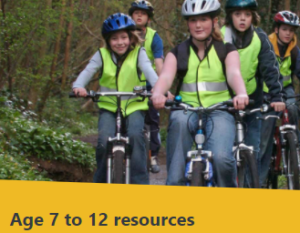
The THINK! road safety website also provides a really helpful selection of resources including games and activities to help children of different ages develop their knowledge and understanding of road safety.
One of the more recent identified safeguarding risks to children is the risk of peer on peer (sometime shown as child on child) abuse and/or sexual harassment. This risk has been highlighted in recently through national campaigns such as ‘Everyone’s Invited’ and national reviews including the Ofsted review into ‘Sexual Abuse in Schools and Colleges’.
We welcome and are working to ensure we fully implement and embed the recommendations from the Ofsted review which include;
Recommendations for school leaders
School and college leaders should create a culture where sexual harassment and online sexual abuse are not tolerated, and where they identify issues and intervene early to better protect children and young people.
In order to do this, they should assume that sexual harassment and online sexual abuse are happening in their setting, even when there are no specific reports, and put in place a whole-school approach to address them. This should include:
At St Peter’s we are clear that;
We are making use of NSPCC resources to further support, train and educate our staff and children as well as to support parents. When assessing and reviewing reports of sexual, harassment, abuse or concerning sexualised behaviours we make use of the resources such as the continuum of responding to sexualised behaviour.
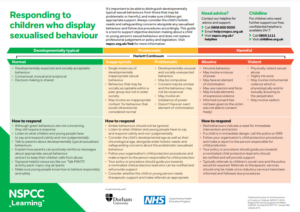
We will make use of and signpost families to sources of support and advice such as.
The Children’s Commissioner resource which highlights the following key points for families to consider.
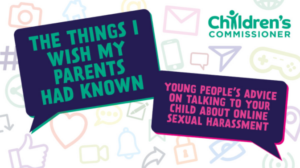
Things I Wish My Parents Had Known – Parent Guide
NSPCC ‘PANTS’ Campaign resources.
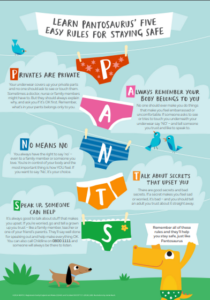
| In winter, children and pets are particularly at risk when tempted to play on the ice formed on open water, and adults can find themselves at risk in attempting to save them.
Taking a nice walk in cold weather with your family, friends or dogs in tow can be really refreshing, just make sure you know some simple tips on how to stay safe in winter. Areas with frozen lakes, ponds, canals and reservoirs can be beautiful places to visit during the winter months but all too often many people risk their lives by venturing onto frozen water. Here are some useful tips to help you know what to do in an emergency. |
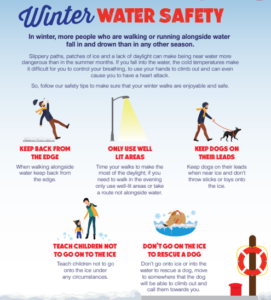


CLEVER NEVER GOES is the new, child-friendly message that teaches children how to stay safe from abduction when they are outside (e.g. walking to or from school), or online. It’s been created to help families talk to their children about staying safe in a simple way. Instead of creating a fear of people it teaches them to recognise the danger in a situation, regardless of who’s involved.
Clever Never Goes Parent Leaflet
We are situated close to a busy Railway station and a number of including out outgoing railway tracks. Many of our families may live near or travel close to the railway as the travel to and from school.
Both Network Rail and The Track SAFE Foundation have a range of resources to reinforce the safety messages delivered in school.
We work closely with a range of other agencies in order to keep children safe and keep up to date with safeguarding issues.
| We work closely with the North Yorkshire Safeguarding Partnership to access training for staff and specialist advice in relation to where referrals are needed in order to keep children safe. |
|
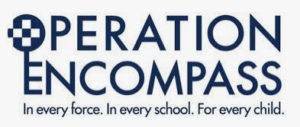
As all schools in England we are part of Operation Encompass. We are pleased to outline below how this contributes to our safeguarding and welfare agenda.
In every force
Our aim is to ensure that schools have timely information about all police-attended incidents of domestic abuse.
In every school
Our aim is to enable staff in every school to understand how to support children who are experiencing domestic abuse.
For every child
Our aim is to ensure all child experiencing domestic abuse receive timely support in their school.
| In line with our vision of enabling everyone to SHINE we want to be able to help families as much as we can in as many ways as we can. Our close and effective links with the Early Help Team plays a key role in this. They can help children and families with a wide range of issues including behaviour, sleep and transition points to name but a few. Their key aim is to;
‘Ensure children, young people and their families receive the right support at the right time to stop problems escalating.’ If you feel their support would be of help to your family please do get in touch with any of the Safeguarding team. |
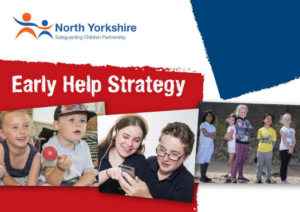
|
